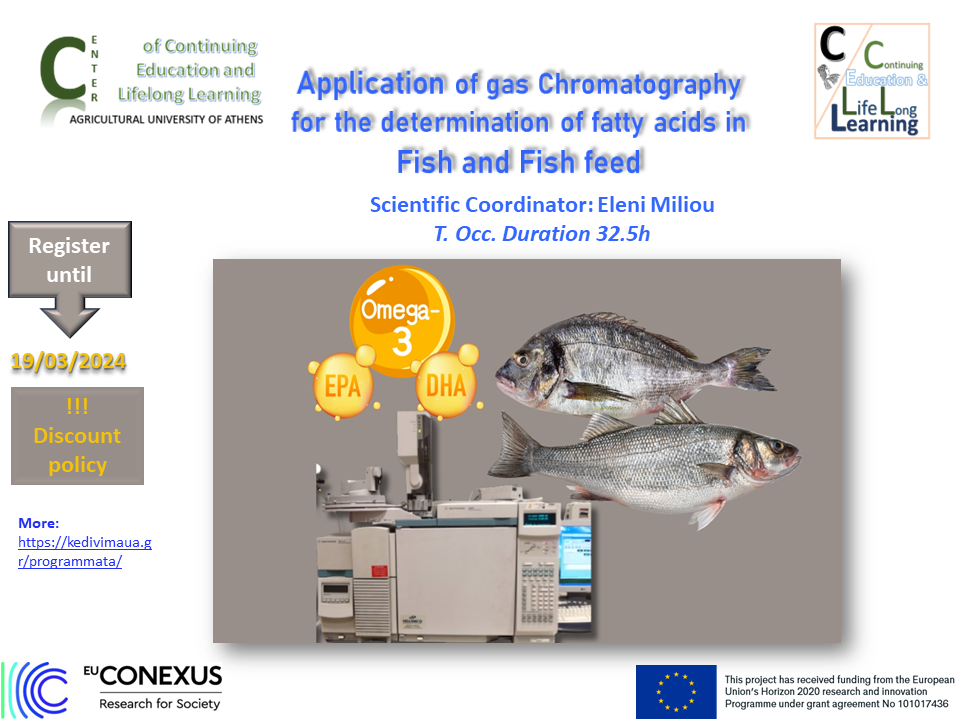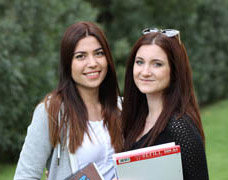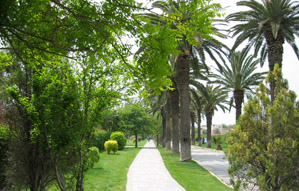Application of gas chromatography for the determination of fatty acids in fish and fish feed

The Center of Continuing Education and Lifelong Learning (CCELL) of the Agricultural University of Athens (AUA) welcomes you to the educational program entitled " Application of gas chromatography for the determination of fatty acids in fish and fish feed " with a total occupational duration of 32.5 hours.
The program will be conducted in the Laboratory of Applied Hydrobiology of the Department of Animal Science at the Agricultural University of Athens and will be implemented using a blended learning approach, distance learning (Synchronous Education) through the CCELL /AUA E-class platform and in-person (participants' physical presence is required).
Scientific Coordinator of the program is Ms. Eleni Miliou, Professor of the Department of Animal Production Science of the Agricultural University of Athens
Purpose
The current Training Program is implemented within the framework of the action: "External services implementation" of the EU-CONEXUS-RESEARCH FOR SOCIETY (EU-CONEXUS-RFS) program of the European Commission (HORIZON 2020), with the main objective of combining access in advanced research infrastructures and processes, training in how to use them, learning new skills and sharing best practices (job shadowing)
Program necessity
Fatty acids are an important component of the human diet and affect health. The determination of fatty acids in fish and fish feed helps to ensure the quality of the food we consume. Analysis of lipid composition and changes in fatty acid content during processing can provide valuable information on the nutritional quality of fish and seafood. This knowledge can help promote the consumption of fish species with higher levels of beneficial fatty acids to support overall health and well-being. The composition of fish feed in fatty acids plays an important role in the development, physiology, quality and well-being of farmed fish in Aquaculture. At the same time, the production of Aquaculture products through sustainable practices contributes to the improvement of the production process, as well as the protection of the environment by reducing the environmental footprint of the Aquaculture industry


